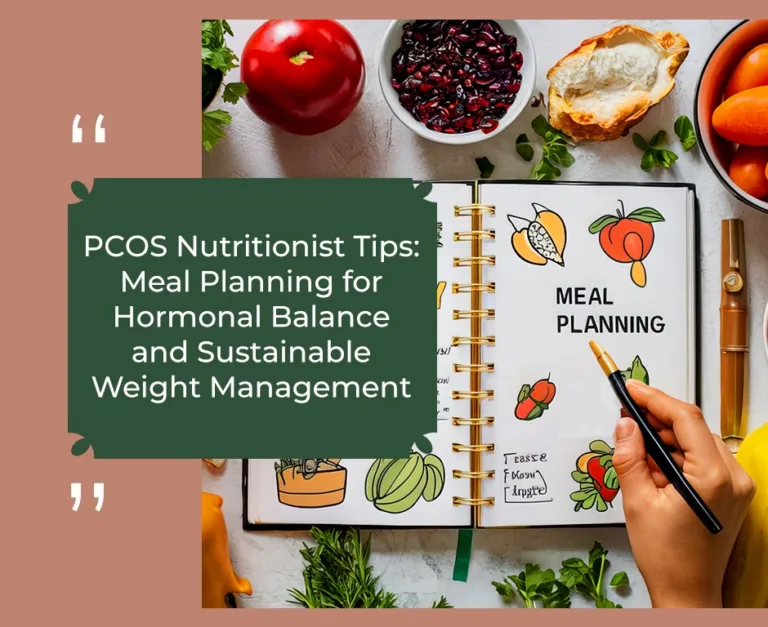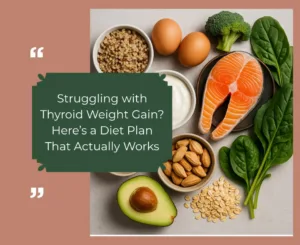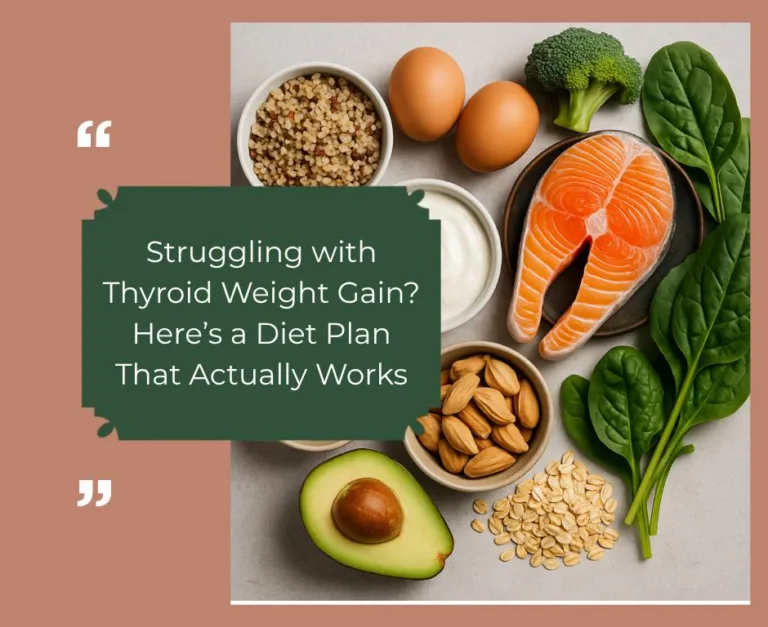Polycystic Ovary Syndrome (PCOS) can make managing your health feel challenging, as its symptoms vary widely from individual to individual. Affecting 1 in 5 women of reproductive age worldwide (about 10% of the total population), PCOS often requires a tailored approach. This blog offers effective tips straight from a PCOS nutritionist to help you create the ideal PCOS diet plan.
What Is PCOS?
PCOS is a hormonal disorder affecting women of reproductive age. Symptoms include inflammation, high levels of male hormones, and insulin resistance, leading to issues like acne, bloating, and weight gain if not managed properly. Lifestyle changes like adhering to a professional PCOS diet plan, exercising, stress management and medications are some ways to manage PCOS.
Why Consult A PCOS Nutritionist?
Everyone’s experience with PCOS is unique, so consulting a PCOS nutritionist can help you tackle challenges effectively. A nutritionist can:
– Provide a personalised PCOS diet plan based on your health and preferences.
– Help you stay accountable.
– Adjust your plan as needed to achieve the best results.
Key Components Of A PCOS Diet Plan
Include all three macronutrients (carbohydrates, protein, and fat) and essential micronutrients (vitamins and minerals) in your diet. Choose whole foods over processed, sugary, or refined ones. Consider these points when creating a PCOS diet plan:
– Low Glycemic Index (GI) Foods: These foods help keep your blood sugar stable. They include whole grains, legumes, and non-starchy vegetables.
– Complex Carbs: Opt for complex carbs like whole grain bread and fruits, which keep you fuller longer and maintain stable blood sugar levels.
– Complete Protein: Aim for 25-30 grams of protein at each meal from various sources to meet daily nutritional needs for all the nine amino acids (molecules that make protein when combined).
– Adequate Fibre: Fibre helps you feel full and supports digestion, making it easier to avoid snacking or overeating.
– Healthy Fats: Necessary for good hormonal health, healthy fats support hormone production.
Meal Planning Tips To Include In Your PCOS Diet Plan
Here are some tips to help you manage PCOS more effectively. Always consult a PCOS nutritionist before making changes to ensure they are suitable for you.
1. Advanced Meal Prep: Preparing meals in advance saves time and helps you avoid unhealthy choices.
2. Avoid Inflammatory Foods: Some foods, like dairy, soy, and gluten, can cause inflammation. Consider reducing these foods with guidance from a nutritionist.
3. Mindful Eating: Pay attention to your hunger and fullness cues. Eat slowly and enjoy each bite. This can prevent you from binge eating and stay on your decided path.
4. Hydrate: Drink plenty of water to stay hydrated and prevent mistaking thirst for hunger. If you are forgetful in hydrating yourself, carry a water bottle and set reminders if needed.
5. Portion Control: Use measuring tools to avoid overeating and ensure balanced portions.
Take the Little Steps
Navigating PCOS is a life-long process and consulting a PCOS nutritionist is the first step. It can provide valuable insights into your health and help you make the right choices. A well-crafted PCOS diet plan can guide you to reach and maintain your goal weight. Follow the tips above and seek professional advice to move towards a more holistic life!

























